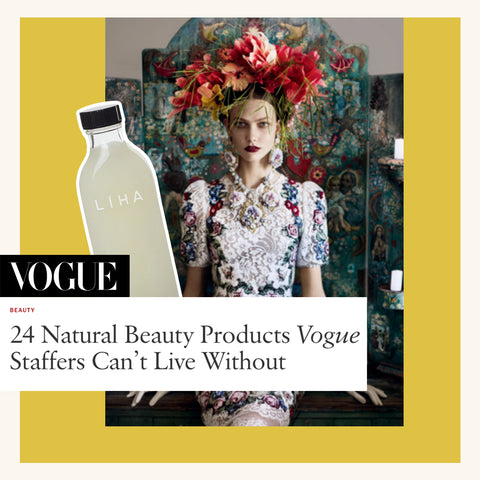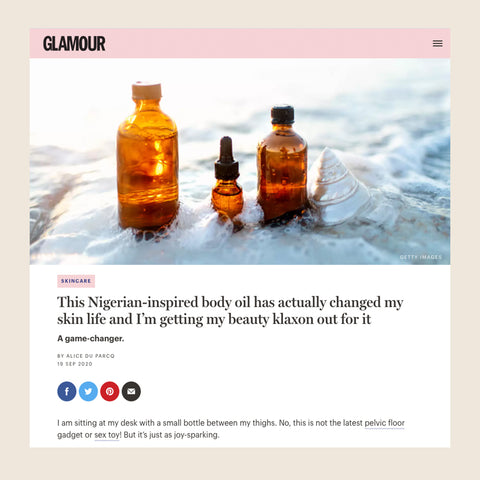Charlene Prempeh SEPTEMBER 23 2020
My face, newly dewy and glowing after being massaged with cleansing balm and warmed in a hot towel, is scrunched up in confusion. I’m determined to squeeze every last ounce of silence and calm from my weekend trip, but the man at the ticket counter is saying that there are no quiet carriages. I ask if there is a carriage that is usually quiet and he raises an eyebrow, embarrassed for both of us by my facial gymnastics. “There is noise in each carriage, madam,” he states, not unkindly. “There is noise everywhere.” This pursuit of serenity may have been more enthusiastically embraced if I had turned to the architects of the aforementioned glow. Abi Oyepitan and Liha Okunniwa, co-founders of all-natural beauty brand LIHA Beauty, started the company in 2014. The duo advocate the importance of nourishing ashe, described in Yoruba as “the life force within all beings”. Their skincare products are rooted in west-African traditions of blending oils, soaps and lotions from ingredients grown in nature, and the healing practices of aromatherapy.
LIHA’s all-purpose Gold Shea butter is wild-harvested in Nigeria, and its benefits range from reducing stretch marks to clearing up nappy rash. The Idan oil, named after the Yoruba word for magic, has quickly acquired cult status for its versatility as a body oil, leave-in hair conditioner and sometime perfume. The oil nods to the complementary interplay between enfleurage – the process of absorbing fragrances through oils – and the warming scent of tuberose flower. LIHA suggests using it before bed and rinsing in the morning. Such gems of advice focused on ritual and wellbeing frequently appear on LIHA products and platforms: on more than one occasion we are reminded that the LIHA journey of self-care is both physical and mental.
Oyepitan and Okunniwa’s LIHA journey started in 1998 at Brunel University, where they would swap product recommendations for natural hair. After graduation, Okunniwa set up an art publishing company, while Oyepitan competed in two Olympic Games as a sprinter, but their dialogue on beauty and hair continued. Okunniwa, whose mother is an English aromatherapist, learnt how to mix products from a young age, and was interested in how Nigerian traditions could inform that process. Thirteen years after meeting, their brand was born. The founders describe themselves as being opposites – Oyepitan is more visual and task-driven, while Okunniwa creates LIHA’s written narrative and enjoys slow living. It’s a dynamic that has helped drive the success of the business; LIHA feels like it has both purpose and stillness in its DNA. The scramble for my calm continues on the train. There is indeed a cacophony, created by excited teenage squeals and the demanding cries of young children. I try two seats before settling by a window; the woman I sit opposite smiles as I flop into the chair. We end up having a conversation about the medicinal qualities of the sea and I think of LIHA when I tell her about African rituals and the importance of nature as a restorative source. Talking eases us through the countryside and along the coast. Though there is noise everywhere, I no longer notice.
Read This Article at The Financial Times




